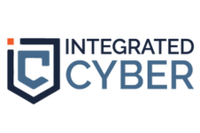In the second quarter, the US Border Agency and municipalities in Florida were both targets of cybersecurity attacks.
The second quarter of 2019 saw a number of major cybersecurity attacks, including one on US Customs and Border Protection, which implicated over 100,000 individuals’ records in May.
Days later, hackers posted the breached records on the dark web, exposing clients’ bank account numbers, Social Security numbers and driver’s licenses, among other personal information. Data was stolen from Perceptics, the contractor to the US border agency.
In June, the US launched cyberattacks after two fuel tankers were targeted by gunmen in Iran. In response, Iranian hackers targeted US organizations, including the Department of Energy.
“Essentially, there have been many people targeted since these tensions increased,” John Hultquist, director of threat intelligence at FireEye (NASDAQ:FEYE), told Wired.
Attacks and breaches took place in other places around the world in Q2 as well. In a survey of firms in the UK, the BBC found that 55 percent reported attacks in 2019, up by 40 percent from 2018. Costs from the attacks averaged US$229,000.
With 2019 halfway over, here the Investing News Network (INN) recaps some of the notable events that took place in the security space in Q2 and what’s ahead for the sector.
Security market update: Retail faces malware
Malware attacks maintained dominance in the cybersecurity space in Q2. Many industries, including retail, were impacted. For example, in May, drive-through restaurant Checkers faced a malware attack on its point-of-sale (POS) system. Checkers has over 780 locations in the US.
“So far, the most notable POS attack of 2019 was on Checkers. POS malware was found in 15 percent of (its) restaurant chain in May 2019,” Nadav Maman, co-founder of Deep Instinct, told INN.
Deep Instinct is a cybersecurity firm that integrates deep learning into its security system. Through employing its neural networks, it provides automated and multilayered security services to businesses.
POS terminals are targeted because they carry an abundance of private, personal information. On top of this, the retail industry is integrating new devices and operating systems, which provide more opportunities for attack, David Roth, senior vice president and general manager in North America for Deep Instinct, explained to INN.
“Retail presents a very unique problem in cybersecurity. It’s a combination of some legacy systems that are very vulnerable, because they are not updated as frequently,” said Roth.
This is not an unfamiliar trend. Applebee’s and Forever 21 are retail companies that have experienced notable attacks in recent years, commented Maman.
“Aggregated data shows that in 2018, around 50 million records were stolen from in-person transactions using POS malware and POS breaches,” he added.
In June, Deep Instinct partnered with Kings Food Markets to provide security solutions for its POS system. Kings is taking preemptive steps towards protecting its customer data and preventing POS attacks. Security systems are planned to be deployed everywhere, from cash registers in Kings’ 24 grocery store locations to its servers.
Security market update: Widespread ransomware impact
The debilitating impact of ransomware is affecting both municipal governments and corporations.
After a data breach that compromised 500,000 British Airways customers, British agencies fined the company close to US$230 million for its security practices. This fine came under the European data privacy law that came into effect in May 2018.
“This is a considerable step change from the previous fining regime, and is indicative of how the (Information Commissioner’s Office) seeks to incentivize security practices to stop data breaches like this,” Michael Veale, a digital rights researcher at University College London, told The New York Times.
In Riviera Beach, Florida, the municipality had to pay attackers US$600,000 in bitcoin to regain access to its systems after a police officer opened an email attachment that contained malware. The attack impacted the city’s 911 emergency response and email systems.
Security market update: Beyond Q2 2019
Looking forward to the rest of 2019, the Brookings Institute has offered solutions governments can use to counter cybersecurity attacks. Acknowledging that no organization is 100 percent protected from cyberattacks, it states that integrating standard security solutions is imperative, as is allocating sufficient resources to security measures and updated computer systems.
“Companies are very aware of the huge financial implications of a breach,” said Maman. “Enterprises should know that hackers are using more automation and more sophistication in their tools.”
Because of the rapid proliferation of ransomware and malware attacks, the demand for security services is increasing. For example, on June 24, Barron’s reported that Fortinet (NASDAQ:FTNT) received a strong future growth projection in a report by JPMorgan (NYSE:JPM). Fortinet is a global leader in providing firewall services.
In short, the security sector continues to expand in size as threats increase in sophistication and frequency. Government, corporate and small business spending has followed in line, and the financing community has taken notice. Between 2014 and 2018, funding levels reached US$1.34 billion.
According to CB Insights, bank backing of security startup companies hit record levels in 2018. The degree of demand for security solutions shows little sign of slowing down.
Don’t forget to follow us @INN_Technology for real-time news updates!
Securities Disclosure: I, Dorothy Neufeld, hold no direct investment interest in any company mentioned in this article.
Editorial Disclosure: The Investing News Network does not guarantee the accuracy or thoroughness of the information reported in the interviews it conducts. The opinions expressed in these interviews do not reflect the opinions of the Investing News Network and do not constitute investment advice. All readers are encouraged to perform their own due diligence.

